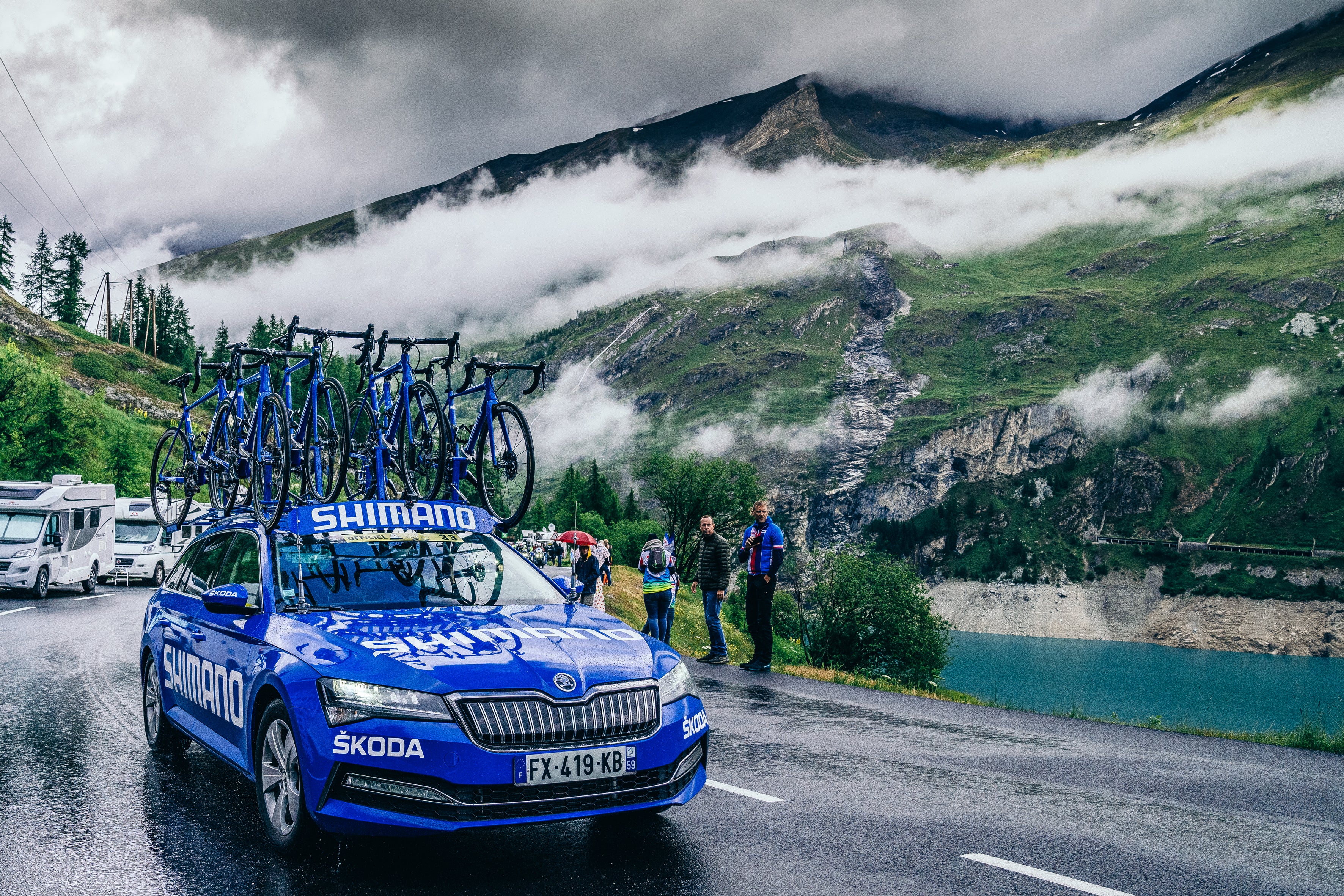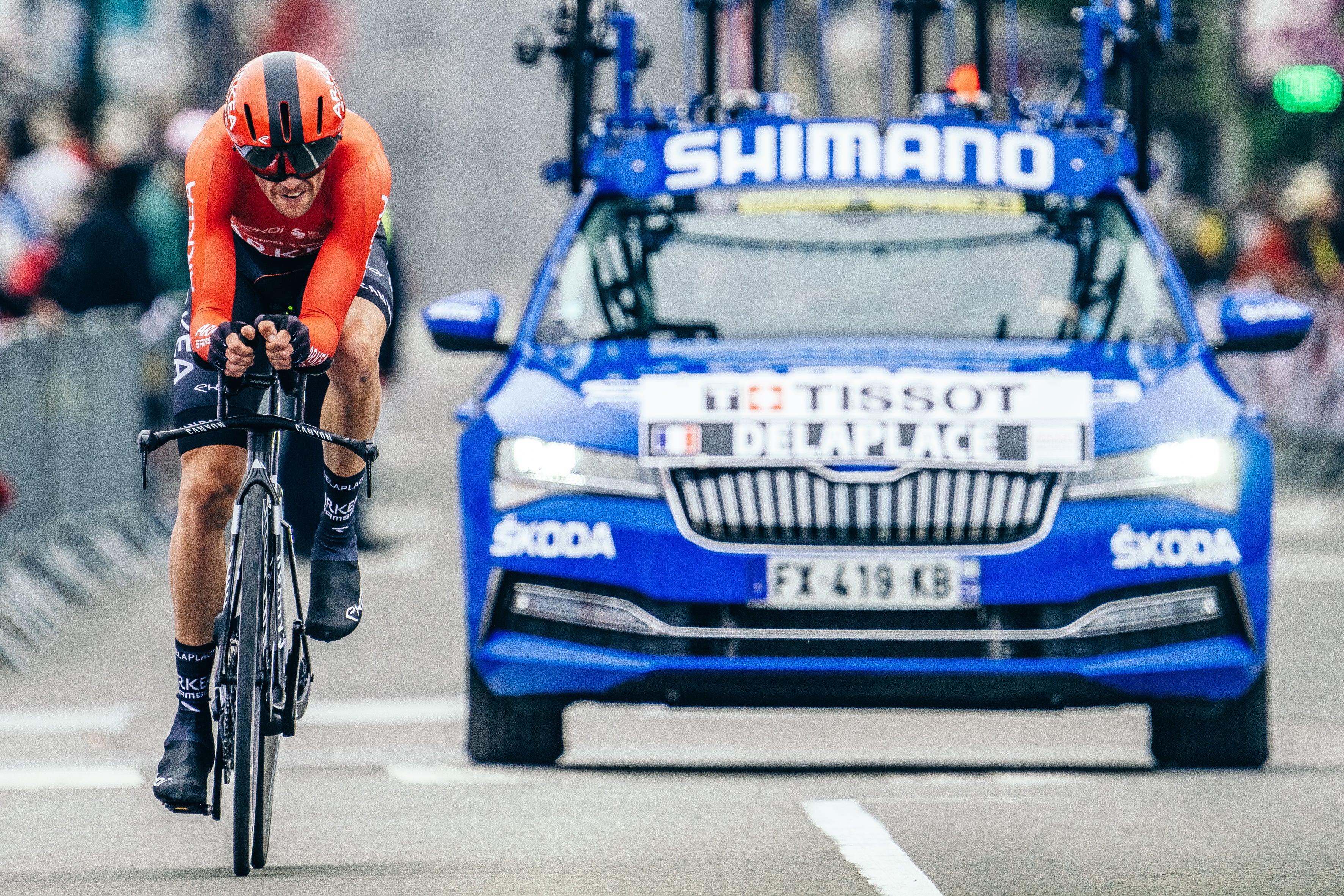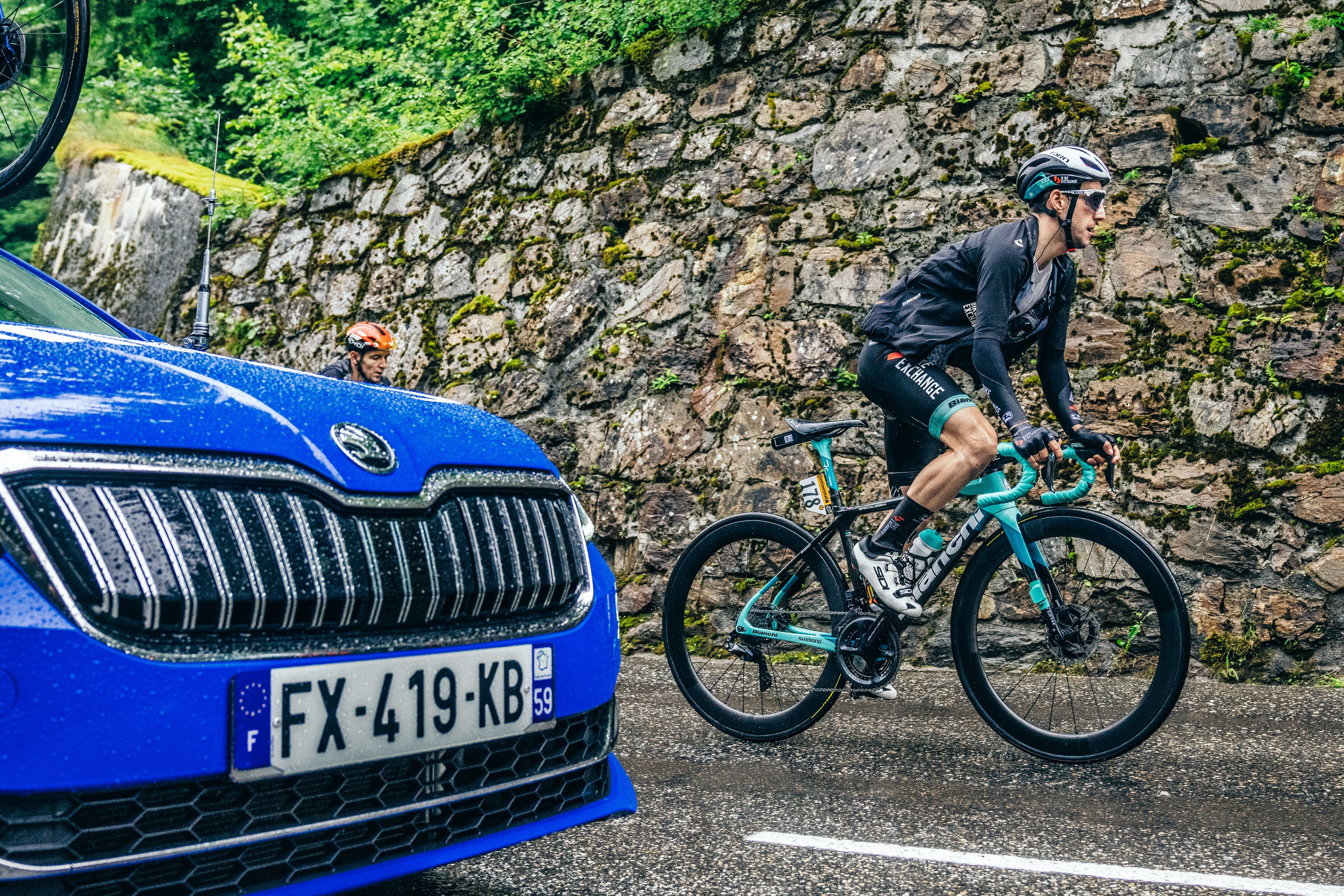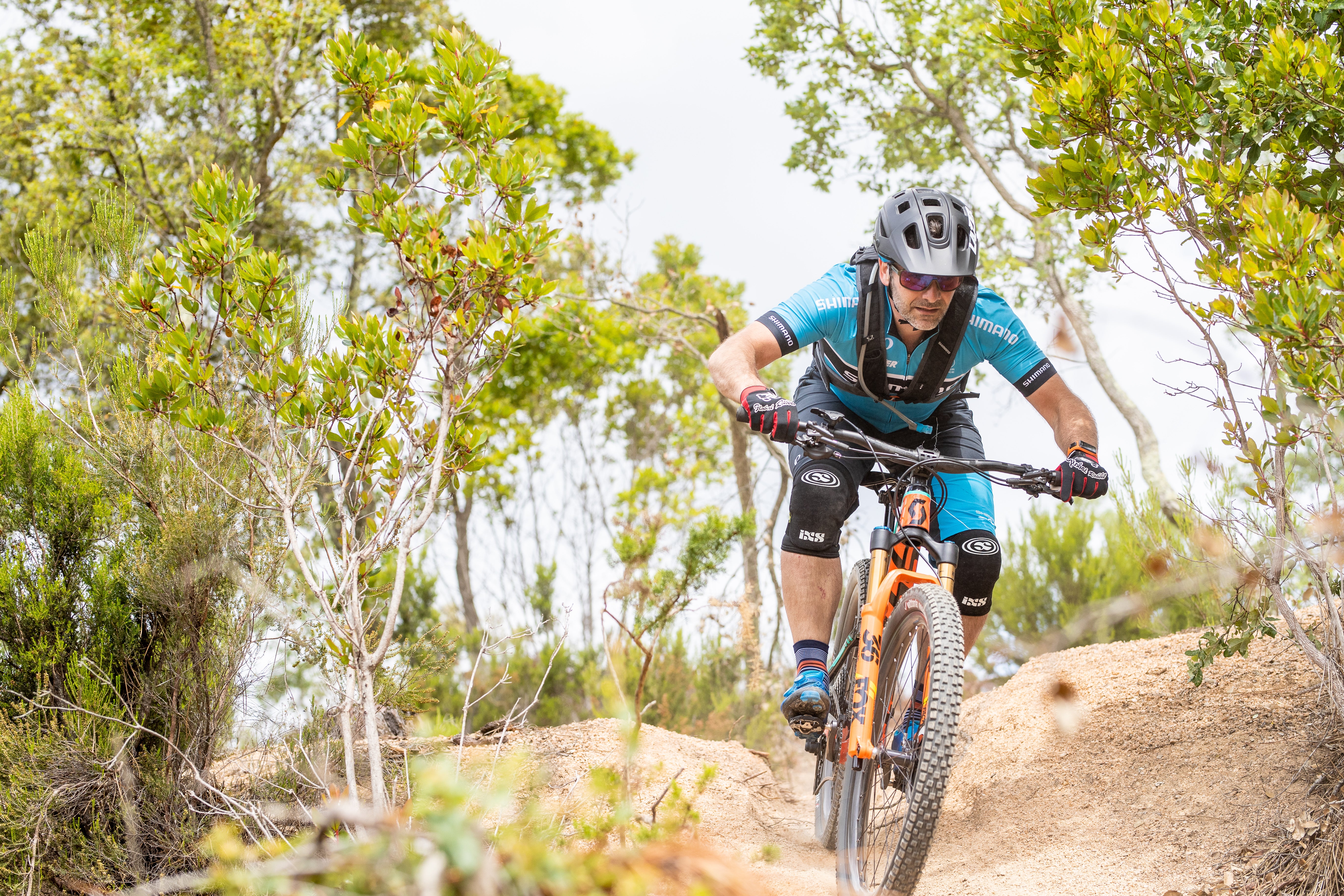Dennis Weijers on Shimano, cycling, and the Tour de France
On the 100th anniversary of the Japanese biking institution’s creation, its European marketing director takes over a key part of the biggest cycling race in the world, writes Sean Russell


The Tour de France is the most beautiful cycling race in the world. Just mentioning the name of it conjures up images of mountains, and rolling fields, medieval castles, and the Champs-Élysées. It’s the yellow jersey, it’s heartbreak and glory and pain. And there is one brand that is just as synonymous with cycling as the Tour de France is: Shimano.
Dennis Weijers, the marketing director for Shimano Europe, started riding his BMX in his home country, the Netherlands, at the age of four. He travelled all over the world racing until he was 17 but by that time the mountain bike boom had begun and he wanted to be a part of it. When he got drawn into a team under the Accell Group, what he calls the “active part” of his cycling career ended and a new journey had just begun.
“A big part of my life was on my bike,” says Weijers. “I wanted to start an active career in mountain biking but then in this new team [with the Accell Group] I had the opportunity to be on the commercial side and that was it.”
While his cycling career was over, he was about to set down a path that would lead him to one of the biggest brands in the cycling world and to the Tour de France, albeit not on a bicycle himself. He spent a few years with the Accell Group, working for the brands Batavus and Be One Bikes before co-founding his own company Rivo Sports, but at some point he realised this was incompatible with his family life.
What I really like about Shimano is it is really in their DNA to support people in cycling
“Your personal life changes,” he says. “You have kids and you try to enjoy your family and you think a little bit differently to working seven days a week, 24 hours a day, so I decided to step down and take some rest to really enjoy my second baby, and then after that I got offered a job at TomTom when they got involved in sport watches.”
Weijers was at TomTom for five years, involved in all aspects of the business, in many regions, and says it was a chance to see outside the cycling world. But when TomTom ended the sports part of their company, Weijers was faced with a big decision: find another role within TomTom or go elsewhere. That was when Shimano approached him.
Shimano was founded in Japan in 1921 and went on to become one of the largest suppliers of bicycle parts in the world. Their “groupsets” – the chain, derailleurs, cranks, gears, and shifters – are on the majority of bicycles around the UK, from their lower end Claris and Sora models to their pro-level Dura-Ace. They also make wheels, clothing, pedals, and offer bike servicing options.

“It was a tremendous opportunity to join one of the biggest brands in the cycling industry,” says Weijers, “so I did, and I’ve been here three years already, heading European marketing”.
And so as the head of marketing, Weijers became involved in connecting the Tour de France with the Shimano neutral service: the biggest brand with the biggest race.
The neutral service is a staple of any large cycling race. It is exactly what it says it is, a service that is free from competition that can help any rider that needs it, be that with a mechanical problem, a flat tyre, a drink, or even a completely new bike. They also carry rival brand parts to support the riders who do not use Shimano but instead use others such as Campagnolo or Sram. A car and motorbikes always follow the riders, often sticking with the leaders, and go places that sometime the cycling team cars that follow behind cannot reach. They are always on hand when it’s needed.

While Shimano has been involved in the race for many years, providing parts for bikes and helping mechanics, the neutral service has been operated by Mavic for 43 years with their iconic yellow cars. But in 2021 Shimano have taken over and installed their blue cars behind the peloton, up and down the mountains. Shimano say the goal is that from any mechanical issue that a rider suffers, they aim to get the rider back on the bike in 30 seconds.
“What I really like about Shimano is it is really in their DNA to support people in cycling,” says Weijers. “We started in 2001 as neutral service for other races including the Giro d’Italia. And we had this opportunity to work together with the Tour organisers and it was a no-brainer.
“The Tour de France is one of the biggest global sports events in the world. I went there last weekend and it was my first time to visit the Tour from the inside and it was bigger than I could ever imagine. There were lots of crashes in the first stages and you could feel the tension amongst the riders because the stakes are really high.”

Weijers tells me, however, that it’s not just professional cycling Shimano want to support but cycling in general and everyone who want to get involved. He says a big part of what Shimano are looking to do is getting as many people as possible riding bikes, keeping them there and making sure their bikes are in as good a condition as possible. This is more vital than ever in the context of the climate crisis. In the last few years, he has seen the electrification of bikes, both in terms of electric gear-changing, and the rise of e-bikes. Plus, he predicts that all bikes will have some form of electric part on them soon.
E-bikes in particular are allowing a whole new group of people to access cycling who might otherwise have not picked up their bikes. People with reduced mobility, for example, and those that like the idea of cycling but lack the fitness to ride up a mountain in France. He points to the Austrian and Belgian markets where he says demand for e-bikes have already outpaced regular bicycles.
“What is really nice about Shimano and what I felt when I started was this giving back culture,” says Weijers. “Giving back to the athletes, giving back to the audience that enjoys cycling is really in our veins. And then that's really nice.”
Join our commenting forum
Join thought-provoking conversations, follow other Independent readers and see their replies
Comments